
Eric Yuan Jan
袁以尚
Born: Lima, Peru
Raised: Lima/Taipei
Much unlike my previous guests, Eric Yuan Jan’s family comes from a different region of China and of a much different professional background.
Eva’s parents were from Macau and Hong Kong, while Roberto’s were from Taishan, Guangdong and so were Wanrong’s (whose article is still under her review at the point of writing). Basically, everyone who I previously interviewed had family that came from the Pearl River Delta region and all of them were restaurateurs.
Perhaps the best way to sum up the difference between Eric and the other interviewees is the way he described himself one minute in.
“我的状况跟一般不太一样啦, yo he estudiado acá pero luego me fui a Taiwán para estudiar en la universidad,” he said. “Lo que yo hice fue totalmente lo opuesto — the opposite.”
Yes, that’s three languages in one paragraph. It really set the tone for our hour long interview.
While my focus lies in Eric’s experience as a born-and-raised Peruvian, I think it makes sense to quickly run through his family’s migration story.
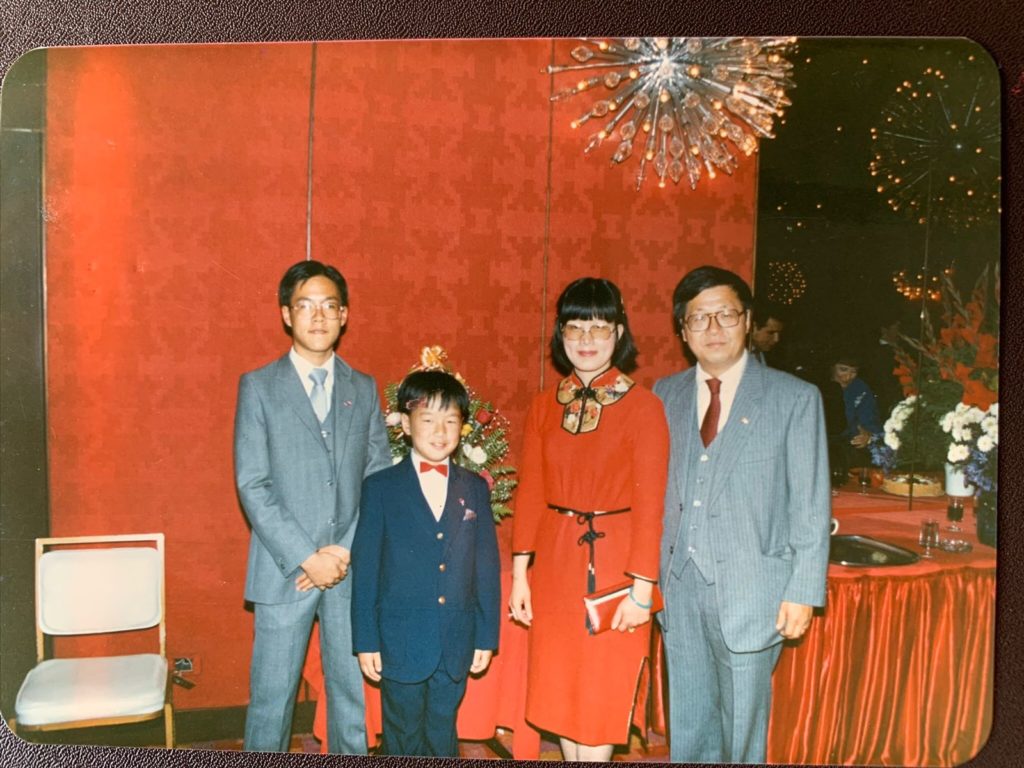
Eric’s father, now 80, was born in Jiangsu and moved to Taiwan alongside the KMT’s retreat in the late 1940s. That’s where his father met his mother, who is Taiwanese Hakka.
“They lost everything. In China they lived very well, but the first few years in Taiwan, it was hard. There was a lot of poverty,” Eric said.
What followed was a true account of the most trodden and Chinese way of upward mobility — education and an “imperial exam.”
Eric’s father went through university with specialization in history. One fine day, he took an exam for a very sought-after role in the government.
He succeeded in that exam and within two weeks he had to go to Peru, or else he had to decline the role as the director of the Chinese languages department in one of Latin America’s oldest Chinese schools.
“My father had to take the posting. At that time, being able to leave the country meant earning 10 to 20 times a regular salary. That’s why he couldn’t turn it down,” Eric said.
That was 1970. Two years before Nixon and Mao met. Taiwan still bore the torch as the leader of China and funded schools overseas, including the one that Eric’s father headed for, the Colegio “Diez de Octubre.”
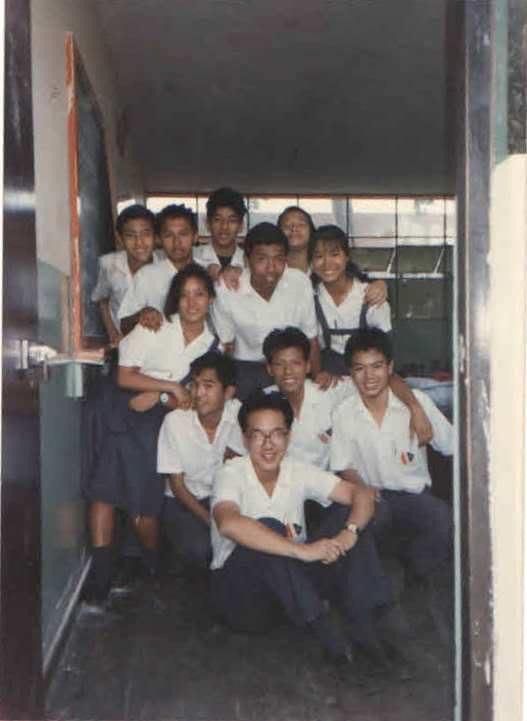
Colegio “Diez de Octubre”
The presence of a Chinese school in a place so far removed from China led me to feel a bit curious and piqued.
How far is Peru from East Asia? Eric said when he visits his parents, who have retired in Taiwan, he has to fly north to the United States or even to Canada, then cross the Pacific. There are also routes via Europe.
Eric described his schooling at the colegio as one where he did the basic courses that everyone else would do, but also spent five hours learning Chinese.
More surprisingly, when he was in elementary school in the 1980s, he studied Cantonese, even though his family did not come from that region. It was that way because most of the Chinese population in Peru were Cantonese speakers.
In secondary school, he started learning Mandarin, and noted that in the ’90s, the school’s Chinese curriculum changed to a Mandarin-based one.
Half the students there were Peruvians and the other half were Chinese, with a sprinkling of mixed race kids.
“You couldn’t discriminate against a Chinese person over there, you know?” Eric said.
The Taiwanese government funded the school and it had a reputation of offering a high-quality education.
“In my time, being able to study there meant being able to go to the best universities, but now, not really,” he said.
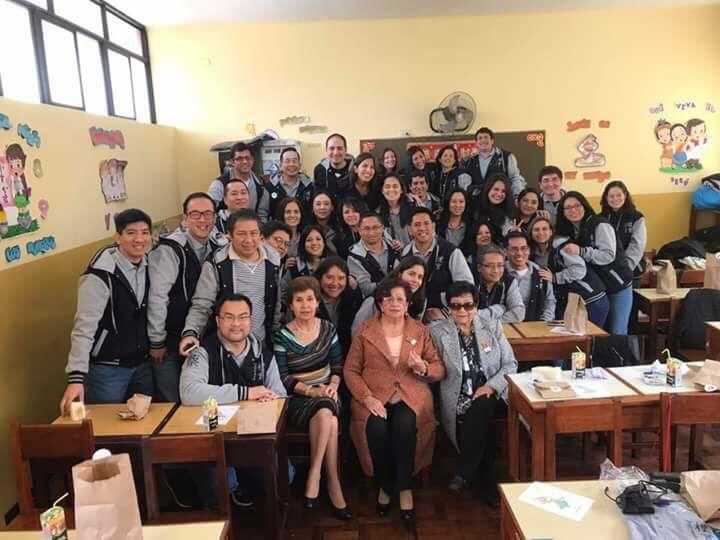
What’s it like being Chinese in Peru
At home, Eric’s father would speak Chinese to him because his father worked in education and therefore saw the importance of Chinese. In fact, he placed Chinese first over Spanish, much unlike other Peruvian Chinese families.
What Eric noticed is that, just like in Asian American households, a noticeable number of Chinese parents would speak the local language to their children in order to help them assimilate.
“But my father said, “I would rather my Spanish weren’t as good than have my child’s Chinese ability to be poor,’ ” Eric said.
And over the decades, he said Chinese people have seen a positive change in how Peruvians treat and see them.
Eric made a caveat clear. He didn’t spend his late teens and early adulthood in Peru.
He went to university and spent over a decade in Taiwan and China between the ages of 16 to 32, on the insistence of his father.
“The truth is that the current situation has changed a lot as compared to 20-30 years ago,” he said. “There’s more equality. I, for example, have never felt discriminated, especially in the social circle that I surround myself in.
“My wife is Peruvian and my friends are Peruvians.”
Did he say 20-30 years ago?
Fujimori and being Chinese
Almost exactly 20-30 years ago, Alberto Fujimori became the president of Peru. For a minority to take the reins of a country, I wondered how many people were saying that “Asian people are taking over.”
And in my experience in Latin America, everyone who looks East Asian immediately qualified as “chino.” Yes, even a Japanese person is “Chinese.” Such a misnomer would completely “trigger” some Asian-Americans.
Fujimori became known as “El Chino.” The head honcho chino boy from 1990 to 2000. So what happens when a visible minority leads the country through thick and thin?
My Peruvian-Chinese pal, Felix, who lives here said that he remembered that people would take their displeasure with Fujimori out on people like him, since he looked like a chino.
A BBC article calls him a “deeply divisive Peruvian leader.”
Eric takes a more positive view of Fujimori’s time as president, saying that his presidency lifted the reputation of the Asian community in Peru.
Eric compared Peru in the ’80s to present-day Venezuela. It suffered from inflation, terrorism and bad government. Eric said Fujimori changed that, starting his presidency with the arrest of the Shining Path’s leader, Abimael Guzman.
“At that time, people looked down on Chinese people, but with the change of government, there was a radical change in government and everything improved,” he said.
Eric did say that there were some less upstanding moments in Fujimori’s presidency including corruption, theft and him trying to continue as president beyond the 10-year, double mandate, limit, thereby tarnishing his reputation.
But Eric does not think the bad rap trickled down on the Asian Peruvian community.
Peruvian goes to Taiwan and China
You’d think that with a father as the director of the Chinese languages in a Chinese school that Eric’s Chinese would turn out immaculate.
That didn’t happen. Funny, this seems to be something that happens to Chinese people all around the world. The likelihood of a child not being able to speak Chinese well remains very high as long as the child has little interaction in Chinese outside their families. This includes me.
In fact, when Eric went to Taiwan for his university studies at National Taiwan University (NTU), he had to take a year’s prep to augment his ability in Chinese.
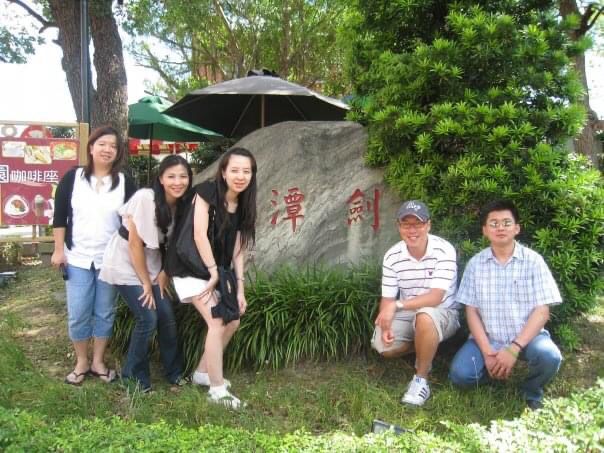
His classmates? They were all overseas Chinese who came to Taiwan to pursue further education but needed language prep. Their Chinese wasn’t up to scratch.
“It was very fun,” he said. “But when I started university, that’s where the headache started. That’s where I understood my language ability wasn’t that good.”
Foreign-born Chinese vs local-born Chinese
In addition to language fluency, integration into Taiwanese society also showed the rift between his Peruvian upbringing and a Taiwanese upbringing.
“To be honest, I didn’t make many friends in university,” he said.
He explained that his classmates were all very intelligent and very good at school, which meant they spent a lot of time on the books. Eric believes this mentality carried onto university from a competitive high school environment.
“In the first two years, I was like, ‘Wow, why is it that everyone only talked about studying,’ ” he said.
I suppose going to a prestigious university in Taiwan would invite people of such mentality.
“Everyone’s very hardworking. It’s all about studying. Everyone needs to get good grades. Everyone’s competing on grades,” he said.
In the end, his friends came from schools that weren’t as prestigious as the NTU and others who he met while working.
He elaborated that it was only in the later years of his time in university that his NTU peers started to open up and go clubbing, drinking, and have hobbies.
Later in the conversation, when talking about his son, Eric also said that Peruvian children can also grow up much more protected by their parents, perhaps because of the less safe environment.
He said his upbringing could be considered unique, given that he left his parents at 17 to go to school in Taiwan while his parents stayed in Peru for almost another decade.
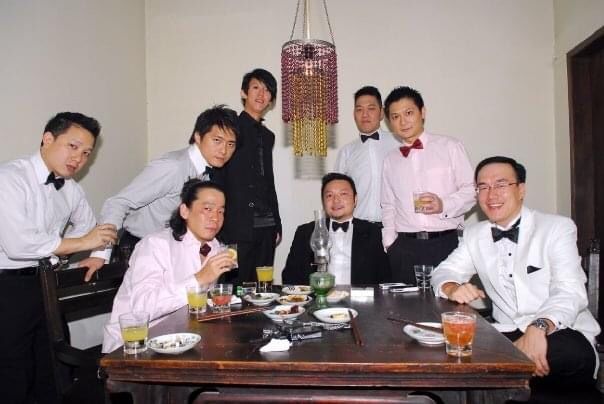
“In China, my opportunity has passed”
Eric spent a total of 15 years in Taiwan and China.
He spent three in China working at a relative’s factory, shuttling between Shenyang and Shanghai. The latter city was where his parents were living after retiring from Peru in 2001.
He observed how people got into the property boom in Shanghai and shared his admiration for the people who made a ton of money. Yet, at the same time, property felt increasingly beyond his reach.
According to Eric’s observations, in 2001, a 100-square-metre apartment in the best area of Shanghai, Xujiahui, cost US$100,000. Loans were cheap and easy, and rental income was high. That property would double in value by 2004. Today, it would cost $2 million.
“I didn’t have their foresight. I saw them buying property, but I didn’t have much money at that time either,” he said.
That’s why in 2005, he came to a realization that his time in East Asia is up.
“In China, my opportunity has passed,” he said.
In 2008, Eric returned to where he came from.
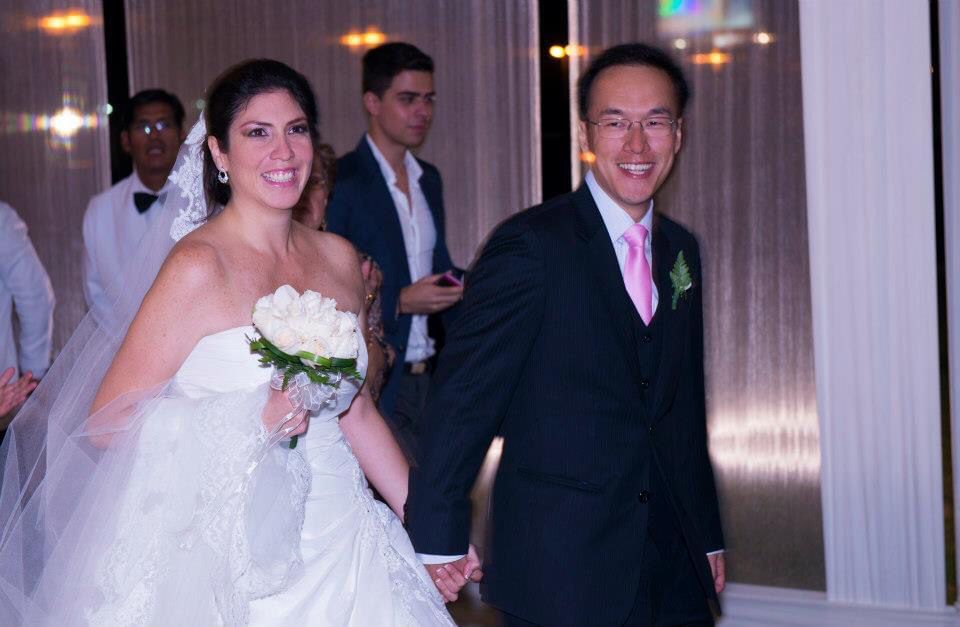
Father, husband, realtor, businessman
Thirteen years have passed since Eric returned from Taiwan to Peru.
In sum, he says life in Peru is more comfortable.
“Life here is quite comfortable. You don’t have to make a lot of money here but you can live a very comfortable life,” he said.
He said he could buy property in Lima and since labour is cheaper, hiring people for help at home is more affordable. He wasn’t sure if those were possible in China and Taiwan.
In fact, he rode the economic boom in Peru from 2008 to 2014, meeting his wife in between and getting married in 2012.
Nonetheless, each step from China to Taiwan to Peru seemed like a step down in materialism and conspicuous consumption.
“Life is simpler,” he said.
At the same time, he recognizes that his family doesn’t have the same freedom to roam freely. Safety is a larger concern in Lima than in Taipei or Shanghai and varies between areas within Lima.
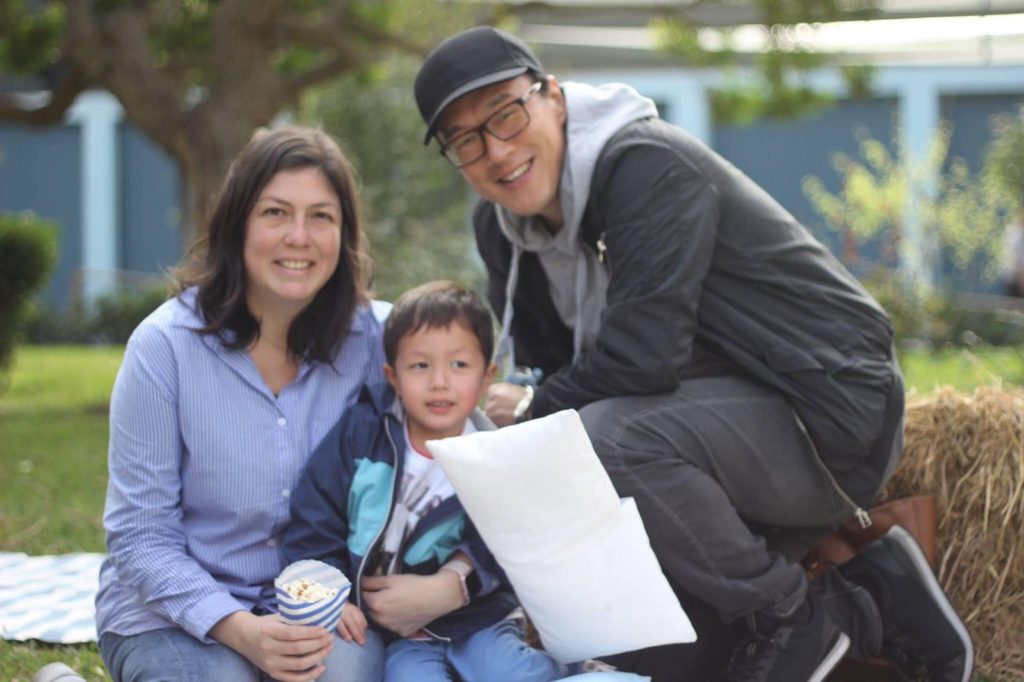
Raising a Chinese-Latino son
Observing North American Asians in families of mixed backgrounds taught me that people from two different cultures can have different opinions of how their children should be raised.
Of a certain poignancy was the difference in how the Chinese parent viewed education.
I asked Eric whether he had any disagreements with his wife on his son’s upbringing.
It turned out that Eric wanted to get his son a tutor when he was five years old. That left his wife flabbergasted.
“She was like, ‘What the hell is going on?’ ” he said.
But the tables turned recently when the coronavirus pandemic broke. His wife became much more anxious about their child’s education as it was done fully at home. That became Eric’s turn to say “you relax!”
At the same time, Eric has made some effort to teach Chinese to his son. For a while, his son went to Chinese classes and from time to time, he tries to teach his son some Chinese.
But he recognizes that he doesn’t have the same gravitas as his father did.
“I feel I should work a little harder,” he said.
His son goes to a British school now, conforming to Eric’s belief that English would continue as the most influential language in the world. Eric hopes that, just like him, his son can gain his independence after high school and study abroad. His wife has shared her hesitancy with this plan.

As it relates to racism to his son, which he says has a “very Chinese look,” Eric said he doesn’t feel that he would experience serious racism.
“I want my child to know that despite him being Asian, that he would be less valuable or inferior,” he said. “I don’t think my son feels that way.”
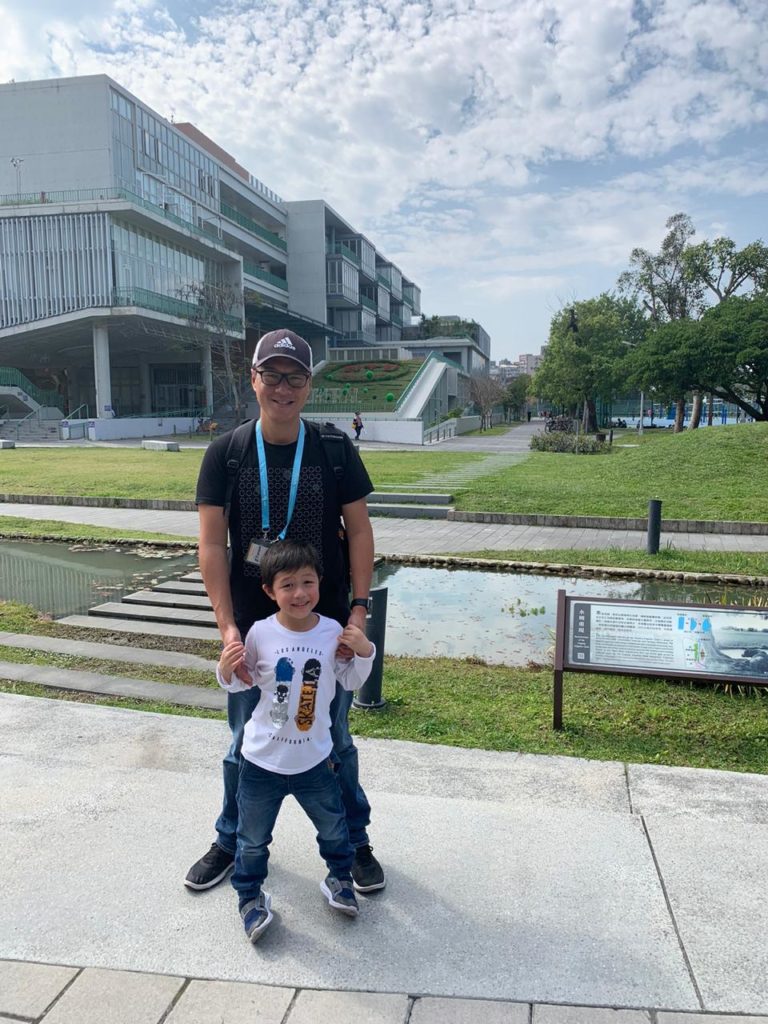
A confidence derived from his father and education
The last few minutes of our conversation looped back to being a Chinese minority in Peru.
I got a sense that Eric believes that the reason why he experienced little, if any, racism came from his confidence and his upbringing.
His father inculcated in him that education is important and had high expectations of him.
“I admire my dad,” he said. “I think from young he gave us a self-confidence that can’t be beaten.”
He also noticed that his peers who have done well in schooling have also had similar success in their lives.
On the flip side, those who haven’t done well in education, have also had lesser levels of success. Eric said it might be because those peers had parents who might not have had such high expectations of their children.
“Parents must impart confidence to their children,” he said.
Leave a Reply